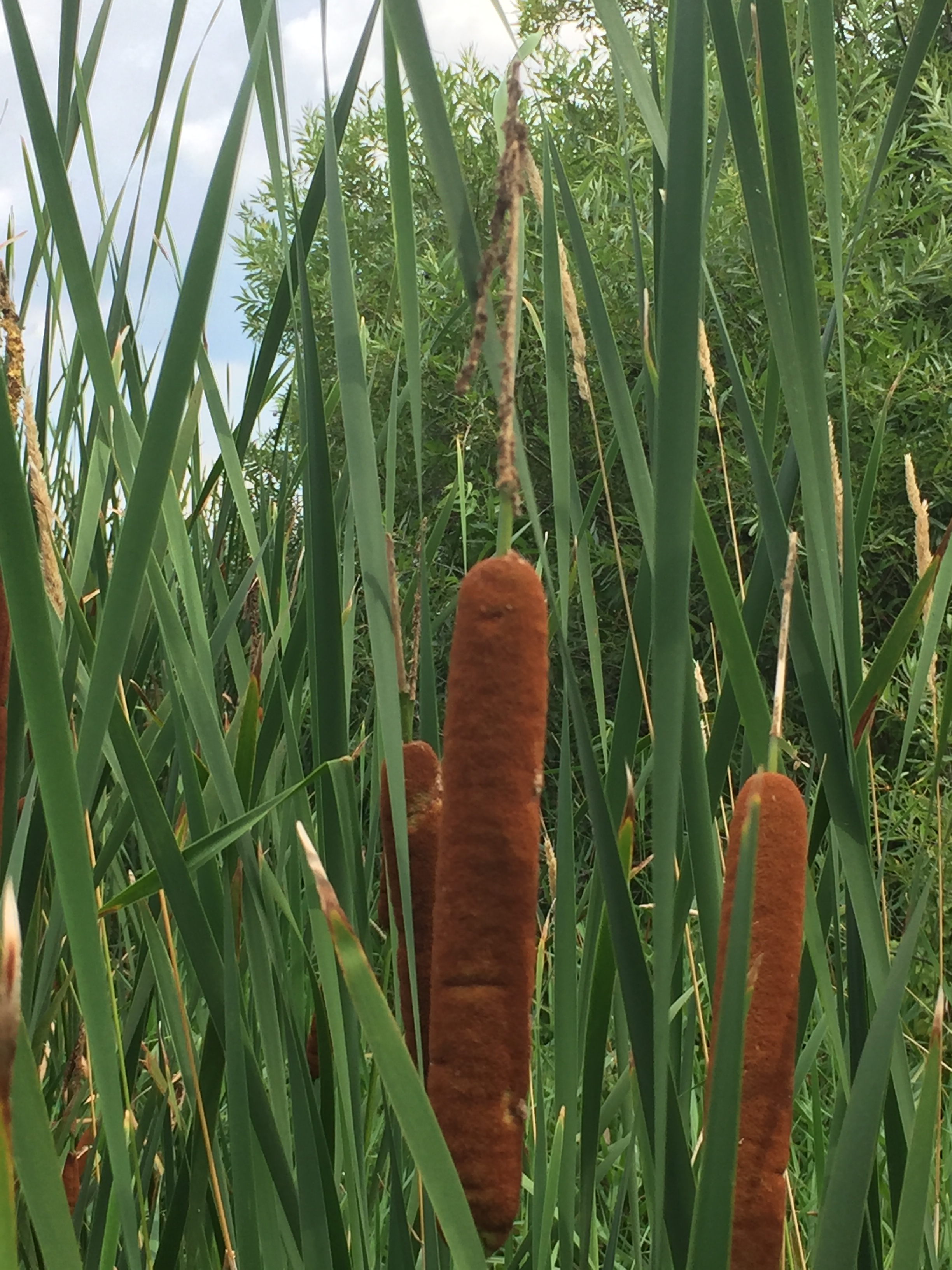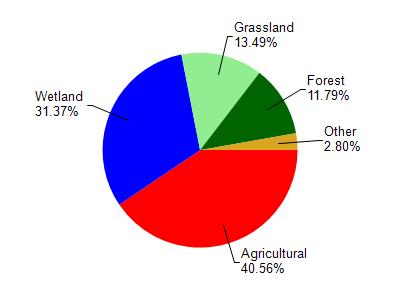
32.20 Acres
Deep Lowland
2025
Poor
Impairment Unknown, Excess Algal Growth
Total Phosphorus
Oconto
No
No
Yes
Fish and Aquatic Life
Overview
Porcupine Lake, in the Little River Watershed, is a 32.20 acre lake that falls in Oconto County. This lake is managed for fishing and swimming and is currently considered impaired.
Date 2022
Author Ashley Beranek
Historical Description
Source: 1977, Surface Water Resources of Oconto County Porcupine Lake, T29N, R19E, Section 12
A hard water drainage lake having slightly alkaline, light brown water of low transparency. The outlet, Little River, flows to the Oconto River. Hardwood swamp wetland comprises the entire shoreline. Littoral materials are primarily muck, with a very limited area of sand. No information is available regarding the fish population, but conditions indicate that the lake will support warmwater game fish and panfish. The Town of Spruce provides public access with parking. No dwellings are located on the shoreline.
Surface Acres = 30.3, Maximum Depth = 20 feet, Secchi Disk = 5 feet
Date 1977
Author Surface Water Inventory Of Wisconsin
Impaired Waters
Porcupine Lake was evaluated in the 2022 cycle: phosphorus and chlorophyll levels were above listing thresholds as outlined in 2022 WisCALM. This lake was added to the 2022 Impaired Waters List.
Date 2022
Author Ashley Beranek
Condition
Wisconsin has over 84,000 miles of streams, 15,000 lakes and milllions of acres of wetlands. Assessing the condition of this vast amount of water is challenging. The state's water monitoring program uses a media-based, cross-program approach to analyze water condition. An updated monitoring strategy (2015-2020) is now available. Compliance with Clean Water Act fishable, swimmable standards are located in the Executive Summary of Water Condition in 2018. See also the 'monitoring and projects' tab.
Reports
Management Goals
Wisconsin's Water Quality Standards provide qualitative and quantitative goals for waters that are protective of Fishable, Swimmable conditions [Learn more]. Waters that do not meet water quality standards are considered impaired and restoration actions are planned and carried out until the water is once again fishable and swimmable
Management goals can include creation or implementation of a Total Maximum Daily Load analysis, a Nine Key Element Plan, or other restoration work, education and outreach and more. If specific recommendations exist for this water, they will be displayed below online.
Monitoring
Monitoring the condition of a river, stream, or lake includes gathering physical, chemical, biological, and habitat data. Comprehensive studies often gather all these parameters in great detail, while lighter assessment events will involve sampling physical, chemical and biological data such as macroinvertebrates. Aquatic macroinvertebrates and fish communities integrate watershed or catchment condition, providing great insight into overall ecosystem health. Chemical and habitat parameters tell researchers more about human induced problems including contaminated runoff, point source dischargers, or habitat issues that foster or limit the potential of aquatic communities to thrive in a given area. Wisconsin's Water Monitoring Strategy was recenty updated.
Grants and Management Projects
| Project Name (Click for Details) | Year Started |
|---|
|
|
Monitoring Projects
| WBIC | Official Waterbody Name | Station ID | Station Name | Earliest Fieldwork Date | Latest Fieldwork Date | View Station | View Data |
|---|
| 443500 | Porcupine Lake | 434008 | Porcupine Lake - Porcupine Lake | 7/19/1979 | 7/31/2023 | Map | Data |
| 443500 | Porcupine Lake | 10019531 | Porcupine Lake -- Access at SW Side Of Lake | 10/17/2012 | 8/13/2019 | Map | Data |
| 443500 | Porcupine Lake | 10052968 | Porcupne Lake Inlet | | | Map | Data |
| 443500 | Porcupine Lake | 10048460 | Porcupine Lake-Deep Hole | 7/8/1976 | 8/6/2025 | Map | Data |
| 443500 | Porcupine Lake | 10001332 | Porcupine Lake | 7/27/1999 | 5/10/2024 | Map | Data |
|

Watershed Characteristics
Porcupine Lake is located in the Little River watershed which is 210.34 mi². Land use in the watershed is primarily agricultural (40.60%), wetland (31.40%) and a mix of grassland (13.50%) and other uses (14.60%). This watershed has 318.76 stream miles, 2,483.26 lake acres and 36,144.77 wetland acres.
Nonpoint Source Characteristics
This watershed is ranked High for runoff impacts on streams, Not Ranked for runoff impacts on lakes and High for runoff impacts on groundwater and therefore has an overall rank of High. This value can be used in ranking the watershed or individual waterbodies for grant funding under state and county programs.However, all waters are affected by diffuse pollutant sources regardless of initial water quality. Applications for specific runoff projects under state or county grant programs may be pursued. For more information, go to surface water program grants.
Porcupine Lake is considered a Deep Lowland under the state's Natural Community Determinations.
Natural communities (stream and lake natural communities) represent model results and DNR staff valiation processes that confirm or update predicted conditions based on flow and temperature modeling from historic and current landscape features and related variables. Predicated flow and temperatures for waters are associated predicated fish assemblages (communities). Biologists evaluate the model results against current survey data to determine if the modeled results are corect and whether biological indicators show water quaity degradation. This analysis is a core component of the state's resource management framework. Wisconsin's Riverine Natural Communities.
Deep lowland lake describes the depth and location of the lake in a watershed. These variables affect the lakes response to watershed variables.